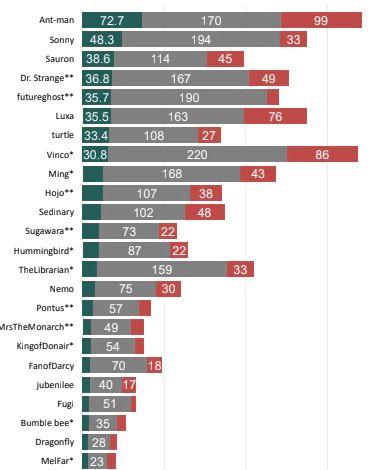The challenge
With its status as a bilingual country, Canada encourages its public service to reflect this status. This is why most management and executive positions require fluent bilingualism. The reality, however, is that many people are not fluent in both languages and the majority of provinces in Canada are English-speaking, meaning learning French becomes a challenge in provinces outside of Quebec.
In its modernization efforts, the Meteorological Service of Canada is working on becoming a more client-oriented service that will require more direct communication between meteorologists and clients, such as the media and decision-makers who will want to be served in both of Canada’s official languages.
We talked to Serge Desjardins, a senior manager in the division, who had sought out a language learning solution to cater to these expectations. His goal was to give as many employees as possible the chance to be exposed to the other language, French or English. Previously, they had been offering weekly group classes as well as intensive 6-24 month training. However, these were very expensive and therefore only available to a very limited number of employees. The organization wanted to keep these options available for advanced training but was looking for a solution that would give more employees at the beginner’s level the chance to get started and gain interest in achieving bilingualism.
In addition, a large number of employees at the Meteorological Service of Canada are shift workers who can’t all attend classes at the same time. So the team needed a more cost-effective and flexible training that many employees could take part in and that would work with different schedules.
Manager Serge also strongly believes in a continuous learning approach, meaning learners are exposed to their new language every day or several times a week, and found e-learning to be the best solution for his team.
Why Babbel?
When Serge came across Babbel’s offering, he found it to be very much in line with what he was looking for. “When I saw Babbel, I liked the idea of 15-minute lessons,” he says.

“Learners can be exposed to their new language every day, even just for 15 minutes, which can be more effective than a one-hour class once per week.”
Serge Desjardins, Senior Manager at Environment and Climate Change Canada

Having access to language learning via an online platform meant that shift workers could learn when it suited them best, for example on breaks, at home, or on their way to and from work. In addition, every employee could start at their own level and freely choose whether they wanted to learn French or English –– each person could identify their own needs and learn at their own pace.
Moreover, all learners received Babbel’s onboarding material, including motivational material as well as learning paths to guide them on their learning journey. Serge found further innovative ways to motivate his team to learn as much as possible and make the most out of their learning experience. Babbel’s weekly usage reports allow him to see how much time every learner spends on the learning platform and how many lessons they complete. With this information, he creates visuals and humorous overviews based on a fun lord of the ring analogy such as the Race toward Babbel Tower showing who learned the most in a week and who has room to improve. The learners stay anonymous in these overviews, using pseudonyms so as not to expose anyone and make it more fun at the same time. These overviews are a great way to spark competition among the employees and motivate learners.
Furthermore, the team was introduced to the rule of Sauron, setting the target of completing at least 30 minutes of learning (lessons or vocabulary revision) per week, with learners risking to lose their license if they break this rule too often. The main objective behind this rule is to give learners a realistic, achievable goal every week as well as keeping the number of inactive licenses low.
And so far, Serge’s efforts have really paid off: His team enjoys the gamification and has improved their language skills in record time. The group completed over 4500 lessons and spent over 1100 hours learning with Babbel in the past year.
“I’ve never seen so many employees learning French at the same time by putting in minutes here and there. This was my goal, to expose as many employees as possible to the other language.”
The feedback from the learners was positive as well: They felt motivated to learn and enjoyed the competitive element Serge brought to the table. They also appreciated having someone to hold them accountable and discuss their learning progress with. One employee in particular told Serge that he was able to understand grammar, read sentences, and felt that he was really progressing in his learning like never before.
Serge also reports that many shift workers appreciate the flexibility of the classes and use their breaks, for instance, to learn with Babbel. “Seeing shift workers highly engaged is a success for me,” Serge says.
Babbel for Business was soon rolled out to other divisions across the country and was perceived to be an interesting self-learning tool to increase the base of proficiency Level A (advanced beginners) in the Federal Service.
Conclusion
Environment and Climate Change Canada needed a flexible digital language learning solution that catered to their shift workers’ schedules and would expose more of its employees to the second official language in Canada in order to increase its bilingual workforce overall. With a workforce that has varying levels of French and English, the learners can choose which language they’d like to improve and what level to focus on, so that every learner can benefit in a way that’s relevant to them. An element of competition worked as an effective method to keep the team motivated, which simultaneously fostered a sense of community while improving the language skills of the entire team.
If you’d like to learn more about which techniques Serge employed to motivate his team, read more here.
For more information on how our team can support you in achieving record numbers and learning success with Babbel, contact us. We’d be happy to hear from you!







